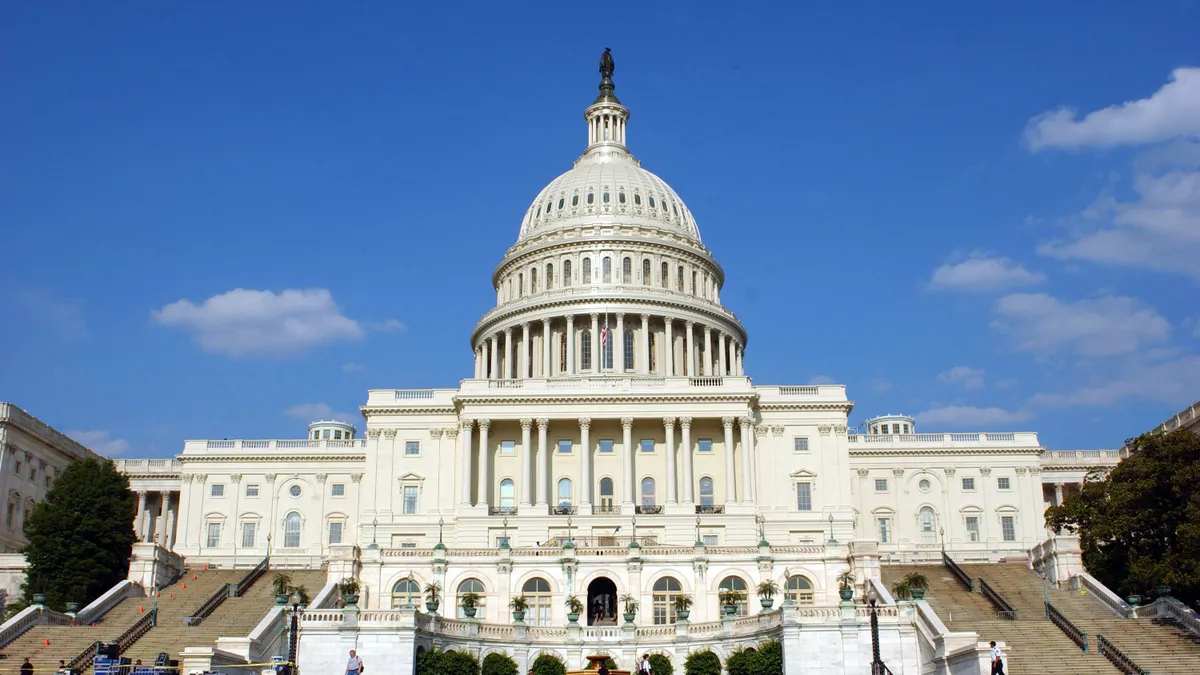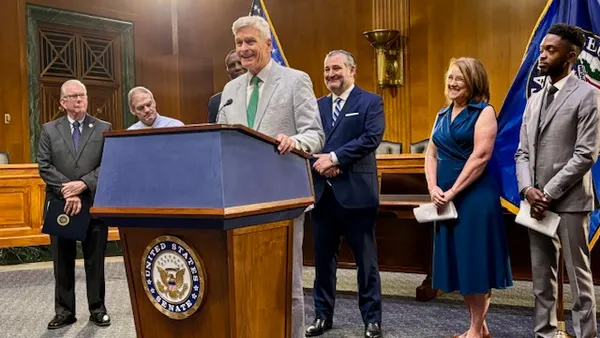UPDATE: Feb. 1, 2024: The package containing the proposed child tax credit expansion passed the House on Wednesday in an overwhelming and bipartisan 357-70 vote. It now heads to the Senate, where it also has at least some bipartisan support.
Dive Brief:
-
House and Senate lawmakers struck a deal Tuesday that would enhance the child tax credit for the first time since an expanded program expired in 2021. The bipartisan deal would increase the maximum refundable child tax credit from $1,600 under current law to $2,000 by tax year 2025, according to the announcement.
-
For tax year 2023, the maximum refundable amount would increase to $1,800 per child. It would then increase in $100 annual increments until 2025, a breakdown of the deal released by the House Ways and Means Committee shows. Beginning in 2024, the tax credit would be adjusted for inflation.
-
The plan, named The Tax Relief for American Families and Workers Act of 2024, would increase the maximum refundable amount for low-income families with more than one child. However, the agreement would still require that earned income be at least $2,500, meaning the lowest earners or those with no income would continue to be ineligible for the credit.
Dive Insight:
The long-anticipated deal is the first bipartisan child tax credit deal to be ironed out and unveiled after multiple failed attempts since the program's historic expansion under the American Rescue Plan.
The deal comes from two powerful members of Congress: Rep. Jason Smith, the Missouri Republican who chairs the House Ways and Means Committee, and Sen. Ron Wyden, the Oregon Democrat who chairs the Senate Finance Committee.
The deal has been struck as part of the $78 billion Tax Relief for American Families and Workers Act of 2024, and the larger package’s future remains uncertain as passage in the divided Congress is not assured.
The deal struck on Tuesday is less expansive than the pandemic-era plans, which made nearly all families eligible for the credit regardless of income. However, it makes headway in a policy area impacting many public school families.
In 2021, the Center on Budget and Policy Priorities found that the temporary ARP expansion led to more low-income families using the tax credit dollars to fund education-related expenses like books and supplies, tuition, after-school programs, tutoring services and transportation to school.
The current child tax credit program leaves some 19 million children — mostly in historically marginalized populations — with either no federal tax credit or only a partial one, according to an analysis released last week by the CBPP.
By contrast, the enhanced child tax credit under ARP was shown to have lifted 5.3 million people — including 2.9 million children — out of poverty in 2021 and helped jump-start a 46% decline in poverty from the year before, according to 2022 U.S. Census Bureau data.
“Poverty hurts babies’ development during the most critical early years of rapid brain growth, leading to developmental gaps that carry significantly troubling implications including for their long-term success in school and as adults,” said Miriam Calderón, chief policy officer at Zero To Three, in a statement Tuesday. The nonprofit organization advocates for babies to have a strong start in life.
Under the proposed framework, some 15 million children from low-income families would benefit, said Wyden in a statement on Tuesday. He added that the expansion "helps so many kids get ahead."
Smith agreed that "American families will benefit from this bipartisan agreement that provides greater tax relief."
An updated CBPP analysis released after the framework was unveiled on Tuesday confirms that about 16 million children would benefit, including nearly 3 million children under age 3, within the first year. Half of the 16 million live in families who would gain $630 or more, CBPP said.
By 2025, at least 400,000 to 500,000 children would be lifted out of poverty, according to estimates from various advocacy and policy groups in the past week.
“While these improvements will make a meaningful difference in the lives of millions of families, they do not go far enough," said Ailen Arreaza, executive director of national family advocacy organization ParentsTogether Action, said in a statement Tuesday.














